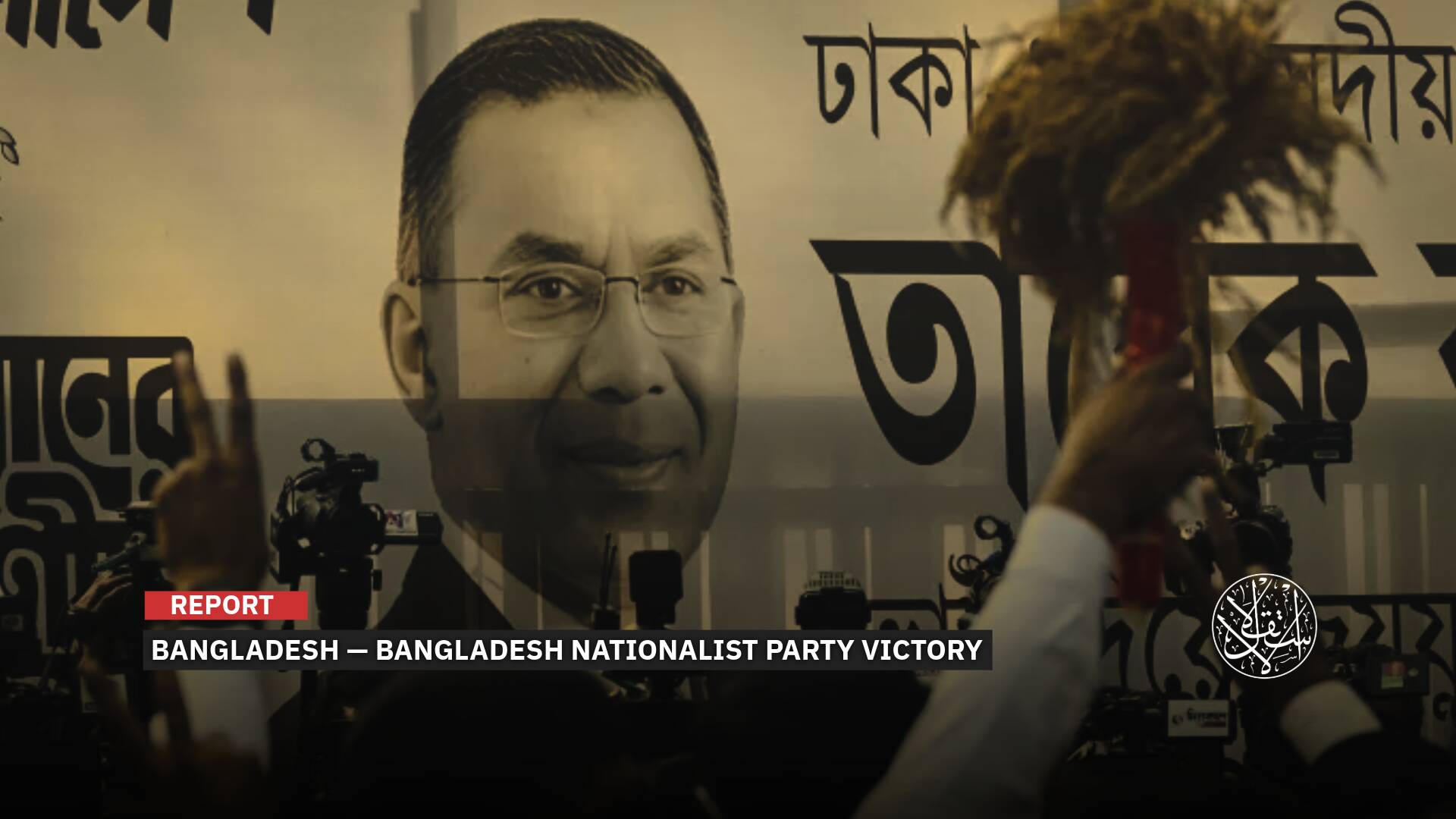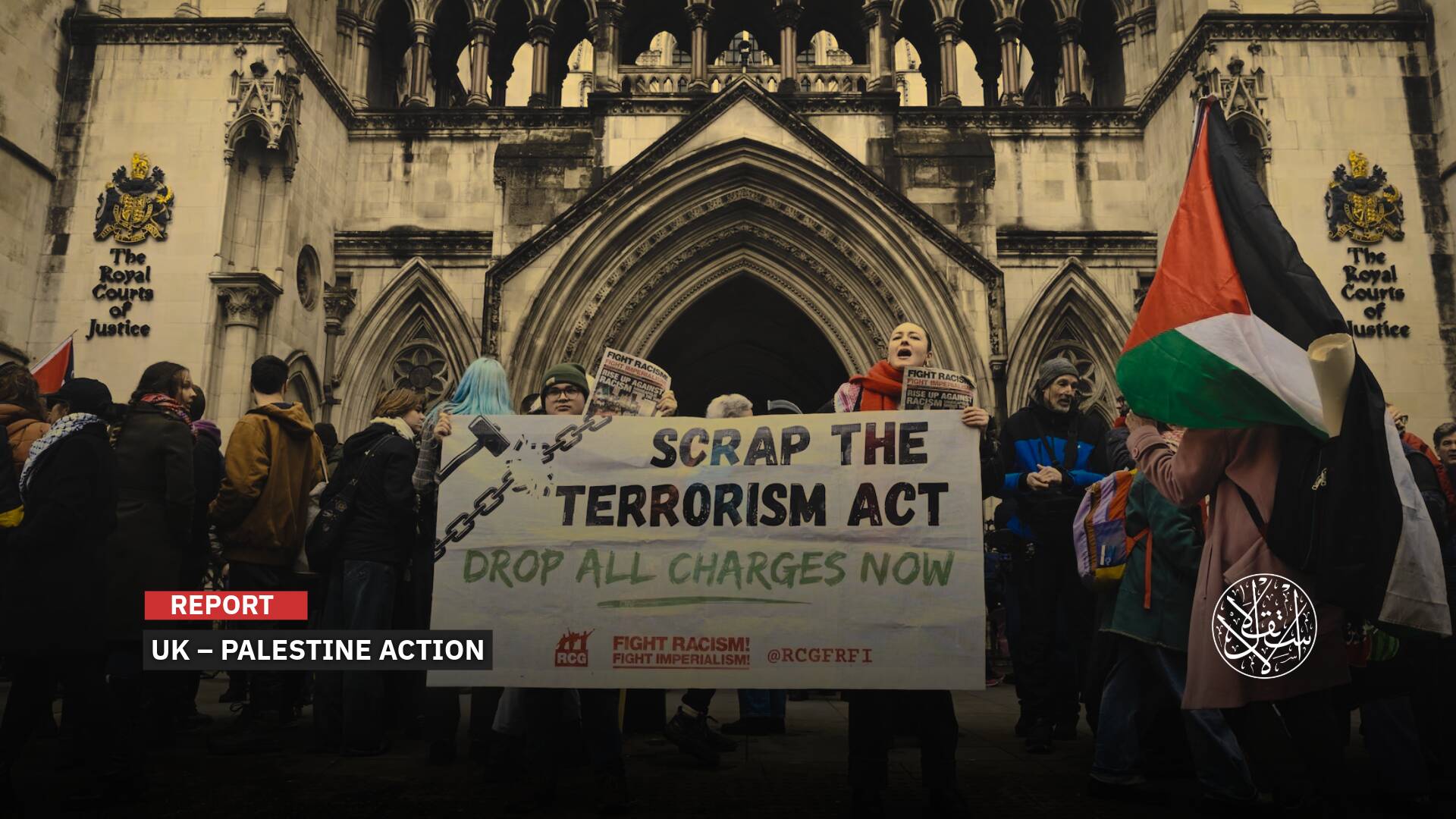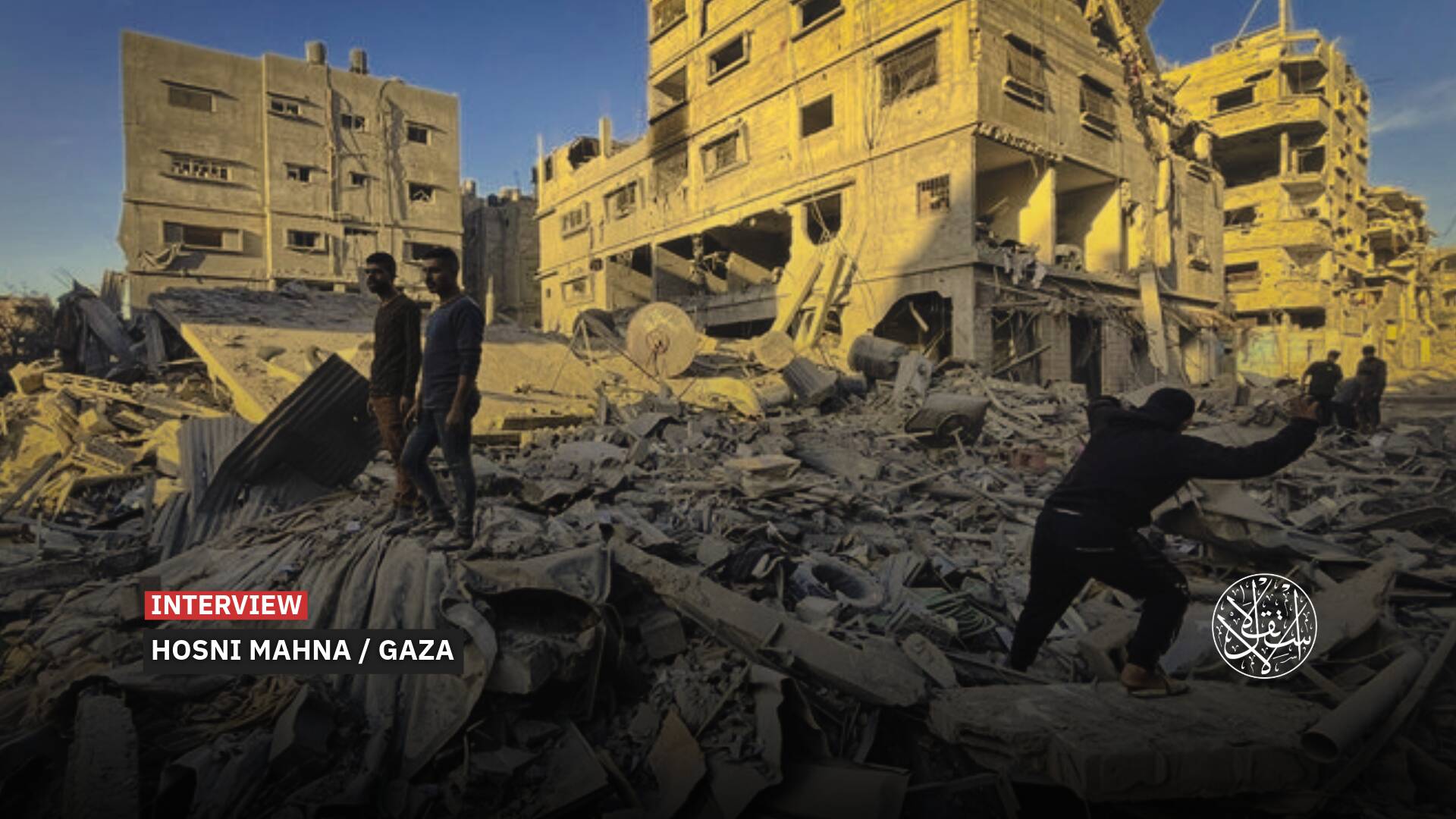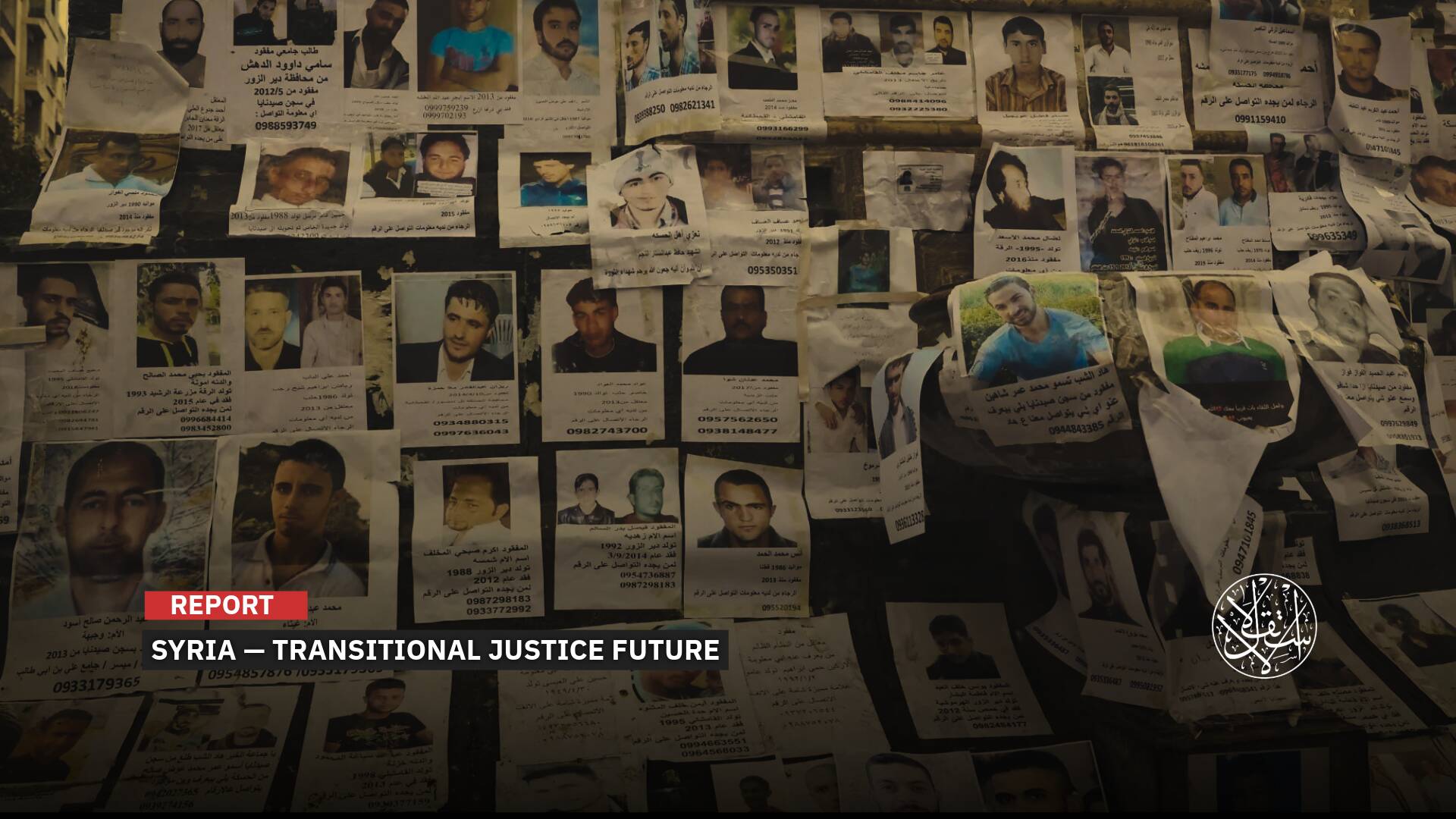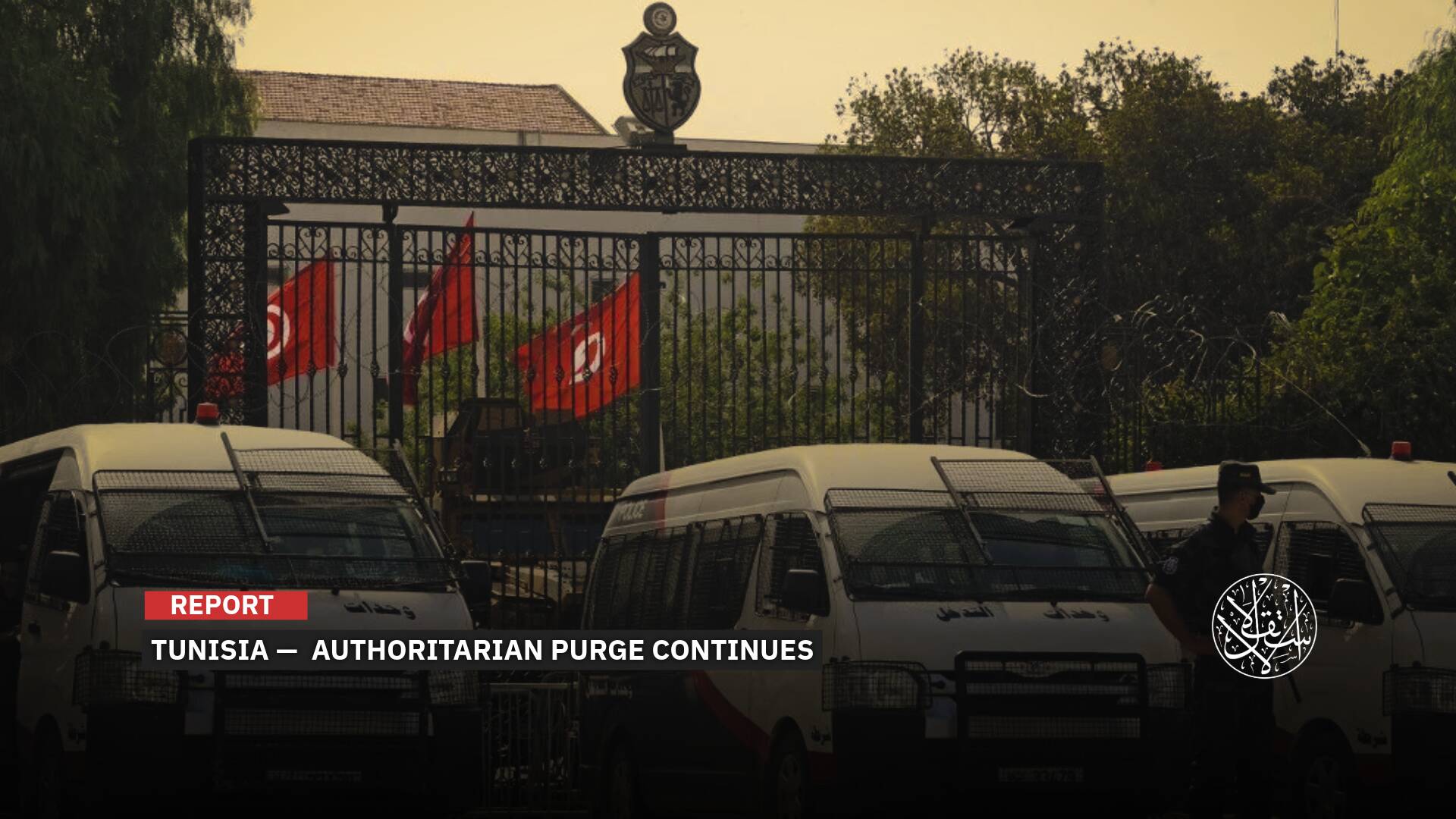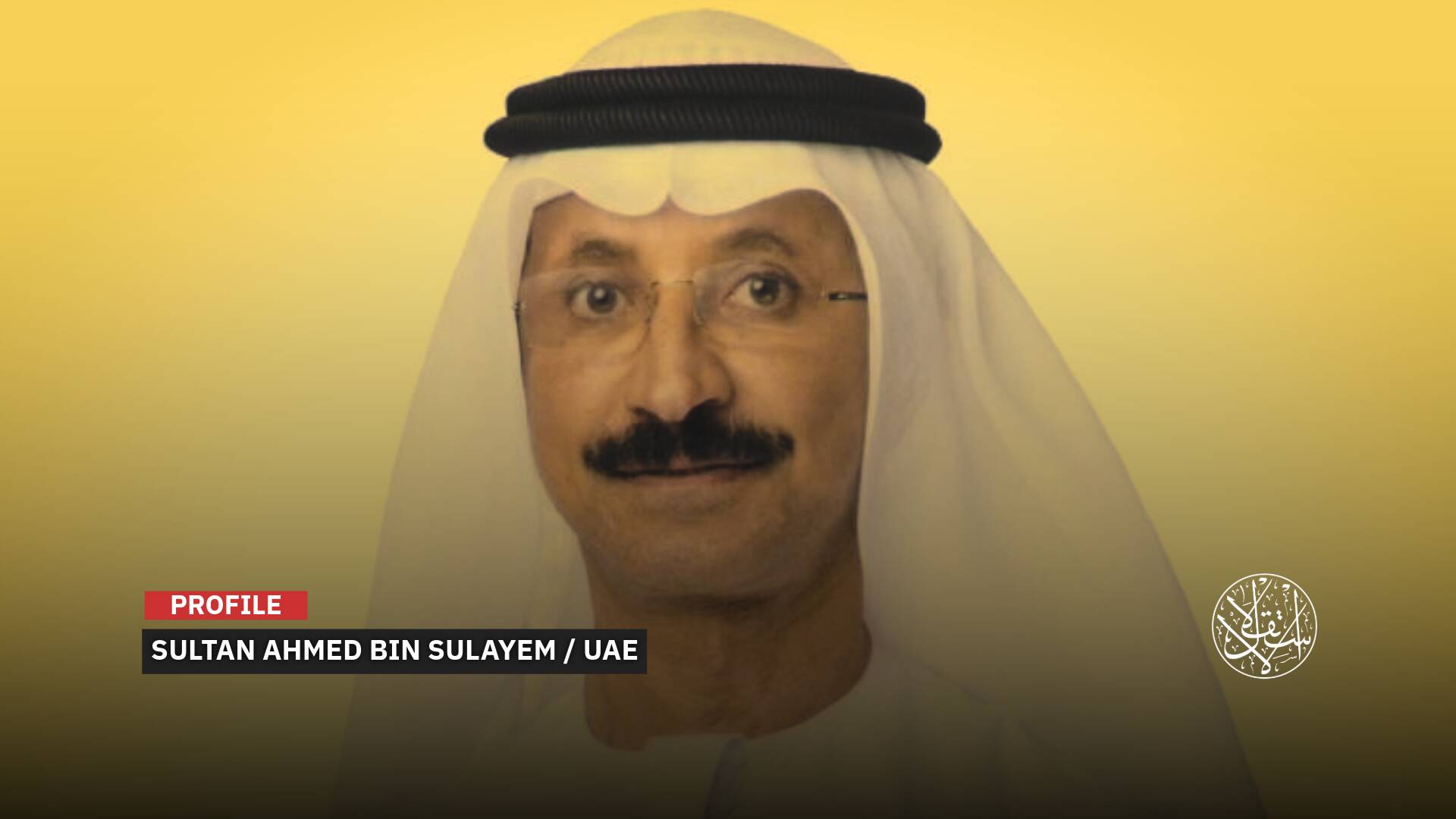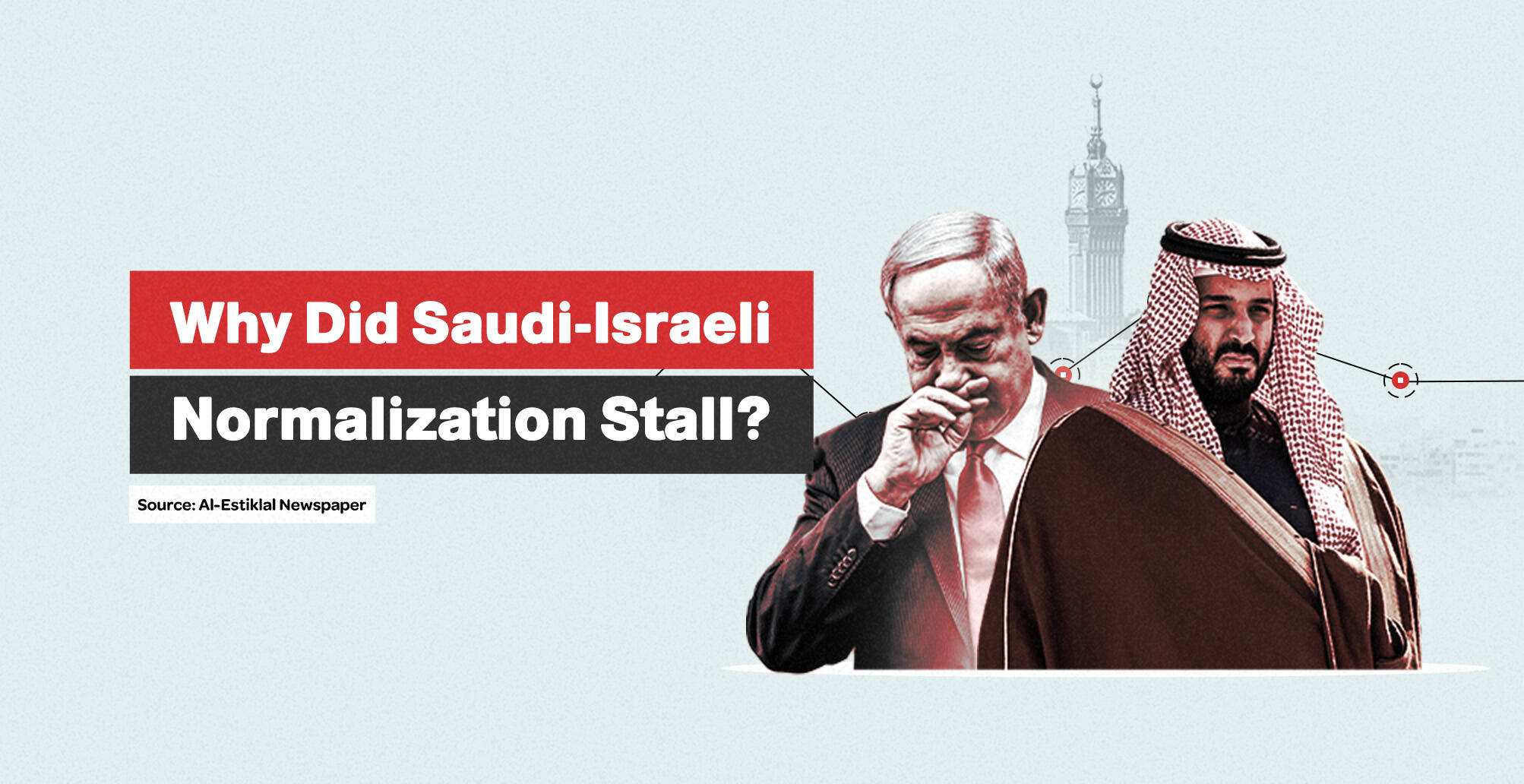Yasin Aktay: Syrian Developments Will Strengthen Erdogan, Mark the Beginning of a New Regional Era (Exclusive)

“The democratic climate fostered by the Justice and Development Party sometimes made people long for change.”
In an interview with Al-Estiklal, Turkish academic and former advisor to the AK Party leader, Yasin Aktay, pushed back against claims that legal cases against Istanbul Mayor Ekrem Imamoglu were politically motivated.
“Every case filed against Imamoglu came from within his own party, the Republican People’s Party, [CHP], not through intelligence work or pressure from the ruling AK Party,” he said.
Aktay also revealed that Imamoglu had once sought a political future with the AK Party. “He tried to run on our lists, but the party rejected him. So he turned to the CHP and essentially bought his way into the party through money and favors.”
He emphasized that Turkiye remains a strong institutional democracy with a robust opposition, crediting President Erdogan for helping shape that environment.
Looking ahead, Aktay pointed to major regional shifts, particularly in Syria. He described the fall of Bashar al-Assad’s regime and the emergence of a new leadership under Ahmed al-Sharaa as a turning point. “These changes will work in favor of the AK Party and President Erdogan,” he said.
On Ankara’s vision for Syria’s future, Aktay stated, “We want a united and stable Syria that respects all its people, Arabs, Kurds, Turkmens, Druze, Alawites, and Sunnis alike.”
In March 2025, Imamoglu, widely seen as Erdogan’s main rival, was jailed pending trial on corruption charges and later transferred to Marmara Prison in western Istanbul.

Istanbul Mayor Crisis
How do you see the repercussions of the French court's ruling against presidential candidate Marine Le Pen on corruption charges on the situation in Turkiye?
It’s almost poetic timing, on the very same day CHP supporters flooded the streets to defend their “presidential hopeful,” Ekrem Imamoglu, who was detained over corruption charges, France handed down a harsh sentence to Le Pen. Once a frontrunner in the 2017 French elections, Le Pen was swiftly sidelined from political life by a single court ruling for misusing EU funds to pay an assistant’s salary.
The irony? Her case pales in comparison to the scale of corruption tied to the Istanbul Metropolitan Municipality. Yet no crowds took to the streets in France to defend Le Pen, and no one accused President Emmanuel Macron of weaponizing the judiciary to crush a political rival.
What’s more, European circles that often preach to President Erdogan about democracy and the rule of law now find themselves exposed by their own glaring contradictions.
One wonders: will this reality check finally wake up the slumbering minds here at home?
How do you see the future of the power struggle within the CHP after Istanbul Mayor Ekrem Imamoglu’s imprisonment and the scandal over his forged university degree?

First, it’s important to clarify: the corruption cases, the university degree scandal, and other bribery allegations against Istanbul Mayor Ekrem Imamoglu were not initiated by intelligence services or the ruling AK Party. They were brought forward by members of his own party, the Republican People's Party (CHP).
In fact, all the legal complaints and reports of wrongdoing originated from within the CHP. It was party insiders who tracked Imamoglu’s activities and submitted evidence, including a video showing large piles of cash being counted inside the municipality. The clip appears to capture Imamoglu on the phone, seemingly orchestrating the transaction.
None of these files or pieces of evidence were submitted by the AK Party or government officials. Instead, they came from CHP members who have been monitoring him closely. And these accusations are not limited to his allegedly forged university degree, a serious ethical issue that, if proven, doesn’t expire with time.
Forgery, bribery, and deception reflect a long-standing pattern. A person who builds his life and career on such tactics cannot be trusted, no matter how much time has passed. And Imamoglu’s troubles extend beyond the fake diploma; he faces serious allegations of bribery as well.
Imamoglu believes money and influence can fix any problem, just as he allegedly used cash to obtain a fake diploma early in his life. Now, some within the CHP are pushing back, unwilling to see him buy influence and control in a party he didn’t grow up in or rise through.
Before joining the CHP, Imamoglu was involved in business, not politics. He even attempted to run on the AK Party’s ticket, but was rejected. Only then did he join the CHP, allegedly paying his way into a position.
Those who know this history are resisting him from within. These legal complaints, then, are not political maneuvers by Erdogan’s party, but internal rejections from a party unwilling to be bought.
The Opposition’s Position
How do you see the future of the opposition bloc following the Republican People’s Party’s recent success in the local elections?
Turkiye is a country of strong institutions and a functioning democracy, and its opposition is robust. President Erdogan has played a major role in shaping this reality. Over the past 22 years of governing and with 35 years of experience in municipal administration, as both a leader of the Justice and Development Party (AK Party) and previously under the Welfare Party, he has built up a wealth of experience in delivering public services through municipalities.
This experience has led to transformative achievements across Turkiye, implementing large-scale projects that have elevated Turkish cities from the conditions of the developing world, marked by pollution, corruption, poor infrastructure, and paralyzing traffic, to urban environments on par with many in Europe.
Before the Welfare and AK Parties took over, municipal administrations run by the CHP were plagued with mismanagement. Cities like Istanbul and Ankara were overwhelmed by garbage crises, traffic congestion, pollution, unpaved roads, and raw sewage. Back then, Turkiye was undeniably in the ranks of the developing world.
The turning point came when the Welfare Party won some municipalities, followed by the AK Party. That marked the beginning of real anti-corruption efforts and effective, dignified service delivery that dramatically improved the municipal landscape, so much so that it kept the AK Party in power for over two decades.
However, the AK Party’s long stay in power under Erdogan has created a generational divide. Many young voters have no memory of the dysfunction and decay that defined Turkiye’s urban centers 25 years ago. They take today’s standards of cleanliness, infrastructure, and municipal efficiency for granted, unaware that these improvements are the result of AK Party reforms.
To them, the competition appears equal. They don’t grasp the scale of failure and corruption that once defined CHP-run municipalities, and thus see no issue with voting for the CHP today.
Add to this the democratic environment the AK Party has fostered, one in which voters feel free to seek change, try new faces, or support different parties if they are dissatisfied with certain services. In doing so, they overlook the deeply flawed legacy of the CHP’s past municipal governance, prior to the leadership of Necmettin Erbakan and Recep Tayyip Erdogan.
All of this reflects how far Turkish democracy has come, thanks to Erdogan’s policies.
We saw this clearly in recent elections: the Turkish people voted for Erdogan and his party in the parliamentary and presidential elections, then less than a year later, freely supported CHP candidates in the municipal elections, an exercise in democratic change.
For the first time in a quarter-century, the CHP emerged as the top party in the 2024 local elections. While the AK Party remained a close second, the margin was narrow.
This shift was largely driven by economic factors rather than dissatisfaction with municipal services. In particular, the growing number of retirees, who formed a significant voting bloc, voted against the AK Party out of economic frustration. Their consolidated vote was a decisive factor in altering the outcome of the local elections.
The AK Party has taken this message seriously and will work going forward to reconnect with this group, alongside efforts to win over younger generations.

What is the fate of the anti-immigrant Victory Party leader after his imprisonment?
Umit Ozdag, leader of the Victory Party, has undoubtedly committed serious crimes by inciting real and deliberate hostility against foreigners. He instigated one segment of Turkish society against another in what amounts to a major criminal act. This is not a theoretical accusation, but a tangible and documented reality.
His actions have caused considerable harm to the Turkish economy by tarnishing the country’s reputation, particularly in the tourism sector, where Turkiye invests heavily. His rhetoric damaged confidence, resulting in financial losses for those involved in tourism-related businesses.
He also created a climate of fear among foreign investors and weakened Turkiye’s ability to attract foreign capital, especially through his inflammatory rhetoric and campaigns of hate targeting Arabs. Many investors and tourists have been driven away as a result.
He was also linked to actual racially motivated assaults against foreigners in cities like Kayseri, Ankara, and Adana—crimes for which legal accountability is warranted. Although his imprisonment was delayed, a line has now been drawn against this type of hate and racism, which is punishable under Turkish law.
An indictment has been filed against Ozdag on charges of repeatedly inciting the public to hatred and hostility through the media, with prosecutors seeking a prison sentence of up to 7 years, 10 months, and 15 days.

Future of the AK Party
What challenges do you think the AKP will face in the upcoming parliamentary and presidential elections?
The Justice and Development Party (AKP) is undoubtedly facing both challenges and opportunities. Among the key challenges is the current economic situation, which is placing pressure on citizens. This goes beyond mere poverty. The AKP’s economic policies over the past 22 years have significantly raised living standards, lifting the majority of the population from the lower class into the middle class. However, the demands and expectations of this expanded middle class have strained the national budget and come at a considerable cost to the state.
This requires a careful reassessment of how to manage the growth of the middle class and how to engage a new generation, young people who were born and raised under AKP rule and have been eligible to vote for the past four years. These voters never experienced pre-Erdogan Turkiye or the years under the Republican People's Party (CHP), unlike their parents and grandparents who witnessed the transformation firsthand. This younger generation, seeking change, assumes that the current state of the country has always been the norm. Reaching and convincing this demographic presents a major challenge for the AKP.
Another challenge comes from certain powerful foreign investment entities seeking to influence Turkiye’s domestic policies to serve their own interests.
On the other hand, there are also significant opportunities for the AKP. One is the resolution of the Kurdish issue, with the majority of Kurds now supporting peaceful struggle and rejecting armed conflict. Even if not all Kurds vote in favor of peace, a solid majority would be enough to shift the balance.
Another opportunity lies in resolving the Syrian refugee issue. If the Syrian revolution succeeds and Bashar al-Assad’s regime collapses, a major pressure point exploited by the opposition for political gain over the past decade would be removed.
There’s no doubt that developments in Syria will positively impact the AKP and President Erdogan.
With more than three and a half years remaining before the next presidential and parliamentary elections, the AKP has ample time to reorganize, recalibrate its strategies, and address any shortcomings.

How do you assess the future of the ruling alliance between the AKP and the Nationalist Movement Party (MHP)?
The alliance between the Justice and Development Party (AKP), led by President Erdogan, and the Nationalist Movement Party (MHP), headed by Devlet Bahceli, has been beneficial for Turkiye's future. It has contributed to addressing a number of complex national issues, most notably the Kurdish question.
MHP leader Devlet Bahceli played a highly constructive role, particularly in counterterrorism efforts and in fostering reconciliation between the Turkish state and Abdullah Ocalan, the leader of the Kurdistan Workers' Party (PKK).
Bahceli went so far as to shift his traditionally hardline stance and extended an unprecedented invitation to Ocalan, signaling openness to dialogue with the Kurdish side.
Only Bahceli could have made such a gesture, one that helped open the door for Kurdish politicians to pursue peaceful political struggle and renounce violence, while simultaneously shutting down those who exploit the Kurdish issue for political gain.
Turks and Kurds are equal citizens under Turkish law, with the same rights and responsibilities. I believe this initiative could have a positive and lasting impact on the future of the Turkish state.

Regional Situation
How do you view the future of U.S.-Turkish relations amid the renewed rapprochement between Erdogan and Trump?
There’s no doubt that President Erdogan and former President Trump enjoyed a strong relationship during Trump’s first term in office. Trump has consistently expressed admiration for Erdogan’s leadership and strong personality, calling him a charismatic and powerful figure, elected directly by the Turkish people.
As Trump moves toward a possible second term, he has already made a notable statement on the campaign trail: “Nobody knows what's going to happen with Syria, but I think Turkiye is going to hold the key to Syria.”
This clearly signals U.S. support for Turkiye’s regional role and reflects Trump’s willingness to give Erdogan space to take an active role in regional affairs. His approach toward Erdogan has been more constructive, aiming to revitalize the U.S.-Turkish ties and restore them to their former status as strategic partners.
By contrast, under Presidents Biden and Obama, the U.S. pursued policies that negatively impacted Turkey, especially through support for terrorist groups that threatened Turkish security and interests.
Trump, however, acknowledged Erdogan’s criticism of those policies, recognizing that past U.S. administrations had acted unfairly toward Ankara. The result was a more collaborative relationship, easing tensions over major points of contention, whether regarding U.S. support for terrorist organizations, Turkiye’s purchase of the Russian S-400 missile system, or Washington's imposition of sanctions.
Trump appears highly aware of developments in the region, approaches issues with a pragmatic mindset, and prioritizes U.S. interests. He also seeks to rebuild trust between Washington and Ankara.
Notably, Trump has questioned the value of the U.S. presence in Syria and seems inclined to take on a new role in the region, potentially choosing Erdogan and Turkiye as key allies in shaping a new Middle East policy.
While Trump’s declared stance on Gaza diverges from Erdogan’s, there’s still room for dialogue between them, even on contentious issues like Gaza and Israel.

What role could Ankara play in advancing peace between Russia and Ukraine?
Since the beginning of the war, Turkiye has taken a unique approach, unlike other parties who were themselves complicit in the crisis. Turkiye remains a key and independent player within NATO.
While it did not openly confront Russia, Turkiye voiced strong opposition to the invasion of Ukraine and consistently called for an end to the war. It also maintained a critical stance on the missteps of both sides.
Despite this delicate balance, Turkiye managed to preserve good relations with both Moscow and Kyiv, positioning itself as a credible mediator. Its impartial role gave it a degree of trust that few others enjoy, and its mediation efforts, such as the Black Sea grain deal, were tangible examples of its constructive influence.
Both Russia and Ukraine now see Turkiye as an important and trusted mediator.
Do you believe Erdogan could play a role in addressing the Israeli genocide on Gaza and the West Bank, and is Trump likely to listen to him on this issue?
This is certainly something Turkiye hopes for. It is counting on the strong rapport between Erdogan and Trump to open channels of dialogue. Given their relationship, it is plausible that Trump would listen to Erdogan on this matter.
There is hope that Erdogan can play a role in alleviating the suffering of the Palestinian people in Gaza and across all of Palestine.
Trump has shown pragmatism on various regional issues, for example, acknowledging that the U.S. gains little from maintaining a presence in Syria, despite pressure from the Israeli lobby to stay. Trump has remained focused on putting ‘America First.’
For his part, Erdogan will do everything in his power to stop the aggression and end the war of extermination against the Palestinian people in Gaza and the West Bank.

The Kurdish Issue and Syria
How do you see the situation in Turkiye following Abdullah Ocalan’s call for his party to disarm, dissolve, and pursue political struggle through integration into Turkish society?
This is undoubtedly a major and unexpected development, especially coming from the leader of the Kurdistan Workers’ Party (PKK), designated as a terrorist organization by Turkiye, the EU, and the United States. Just months ago, such a statement would have seemed unthinkable. No one would have believed it possible.
However, this is one of the outcomes of the peace process launched in the early 2010s under President Erdogan, who initiated a bold and historic reconciliation effort that opened direct dialogue between the Turkish government and the PKK.
Today’s Turkish state embraces not only Turks but also Kurds and other ethnic and sectarian groups. It is a pluralistic state, and Kurdish citizens should channel their efforts through peaceful political participation rather than armed struggle.
Unfortunately, that peace process was derailed by both internal and external actors who sought to exploit the Kurdish issue for their own agendas, particularly some European capitals, certain elements in the U.S., and factions within Turkiye, including the far left. Instead of seizing the opportunity to lay down arms in 2010, the PKK recruited more youth fighters, leading to the collapse of the peace initiative over a decade ago.
But now, we're entering a new phase, especially in light of developments in Syria and the weakening of Bashar al-Assad’s regime. The new landscape is closing the door to foreign powers that once interfered in Syria, and there's renewed focus on Syrian citizens. Rebel groups from diverse backgrounds have now been integrated into the Syrian military structure, creating a national framework that eliminates justifications for foreign intervention or separatist ambitions—whether among Kurds or others.
Calls for Kurdish independence or the partitioning of Syria have significantly lost momentum. Syria now sees its future as a unified state for Arabs, Kurds, Turkmens, Sunnis, Alawites, Druze, and others alike.
In Turkiye, efforts to eliminate armed terrorist groups have created space for ending violence. The current democratic climate allows Kurds to gain their political rights and protect their interests through peaceful political action. There is no longer any need for a militant group like the PKK.
Kurds have already achieved political representation, not thanks to the PKK’s violence, but through the Justice and Development Party (AKP), which embraces an Islamic vision that sees Kurds, Turks, and Arabs as brothers in both religion and nation.
This vision removes any justification for bearing arms in pursuit of rights.

Does Ocalan’s move mark the end of using the Kurdish card to threaten Turkiye’s national security?
The peace agreement announced today certainly signals the end of the long-standing manipulation of the Kurdish issue as a tool to threaten Turkiye’s national security. However, the situation remains complex.
There are still obstacles ahead. Certain actors remain intent on preventing Turkiye from achieving lasting stability, and there are fears they may attempt to sabotage this new phase, just as they did during the 2010–2015 peace process. That earlier initiative had a clear framework and sought a lasting solution to the Kurdish issue, but unfortunately, it was derailed by external incitement and interference.
This time, however, there is cautious optimism. We believe the Kurdish crisis may finally be resolved. Still, we must remain alert, especially given that the Zionist entity [the Israeli Occupation], which has long benefited from conflict between the Turkish state and the PKK, may attempt once again to ignite unrest and undermine the peace Ocalan has now called for.
What impact does the agreement between Syrian President Ahmed al-Sharaa and the Syrian Democratic Forces have on Turkiye?
The agreement has a clear and positive impact on Turkiye. We support a unified and strong Syria, one that respects all communities: Arabs, Kurds, Turkmens, Druze, Alawites, and Sunnis alike.
In this new Syria, there will be no need for any group to demand autonomy, because the post-Assad state will aim to include everyone on the basis of equal rights and freedoms while embracing positive ethnic, cultural, and sectarian diversity.
This vision aligns with Turkiye’s own approach: a unified Syria that becomes a stable neighbor and a contributor to peace and stability across the region, God willing.



